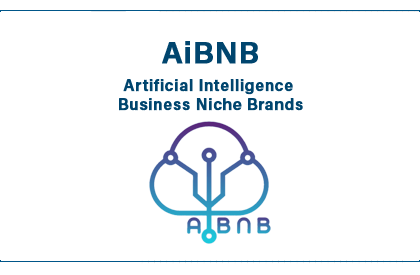As the use of Generative AI continues to grow, companies are turning to AI content creation to automate tasks and improve productivity. Large language models, such as those developed by OpenAI, are being used to generate human-like text, making it possible to automate tasks such as customer support and content creation. With investment levels in AI now 18 times higher than in 2013, it’s clear that AI is transforming industries such as finance, manufacturing, agriculture, and healthcare.
Generative AI has the potential to revolutionize the way companies operate, from smarter fleet management to improved quality control in manufacturing. However, with the growing use of AI, there are also concerns about privacy and cybersecurity risks, particularly in the healthcare sector. The use of personal data to train AI remains a significant concern for regulators, and companies must navigate these risks to ensure IP protection and data privacy.
The Power of Generative AI
Generative AI is being explored in various industries, including customer service, content creation, and data analysis. With the ability to generate human-like text, images, and videos, Generative AI is being used to automate mundane tasks and enhance productivity. Large language models are being used to generate human-like text, making it possible to automate tasks such as customer support and content creation.
Key Takeaways
- Generative AI is transforming industries such as finance, manufacturing, agriculture, and healthcare.
- Large language models are being used to generate human-like text, making it possible to automate tasks such as customer support and content creation.
- Investment levels in AI are now 18 times higher than in 2013.
- The use of personal data to train AI remains a significant concern for regulators, particularly in the healthcare sector.
- Companies must navigate privacy and cybersecurity risks to ensure IP protection and data privacy.
- Generative AI has the potential to revolutionize the way companies operate, from smarter fleet management to improved quality control in manufacturing.
- AI content creation is being used to automate tasks and improve productivity.
The Power of Generative AI
Generative AI has the potential to revolutionize various industries by automating mundane tasks, enhancing productivity, and improving decision-making. With the help of deep learning AI, businesses can analyze large datasets, identify patterns, and make predictions, freeing up human resources for more strategic tasks. For instance, OpenAI’s large language models can generate human-like text, making it possible to automate tasks such as content creation and customer support.
AI-generated media can be used to create personalized content, such as videos and images, that can be used to enhance customer engagement and drive sales. According to recent estimates, generative AI could add the equivalent of $2.6 trillion to $4.4 trillion annually across 63 analyzed use cases. This potential economic impact represents an increase of 15 to 40 percent over the current estimates of the total economic value of artificial intelligence.

Approximately 75 percent of the value from generative AI use cases is expected to come from four key areas: customer operations, marketing and sales, software engineering, and R&D. The retail and consumer packaged goods sectors could see a potential impact of $400 billion to $660 billion a year from generative AI. By leveraging the power of generative AI, businesses can streamline their operations, improve efficiency, and drive innovation, ultimately leading to increased productivity and economic growth.
The Challenges of Generative AI
As the capabilities of Generative AI continue to evolve, it is essential to address the challenges and limitations that come with this powerful technology. While Generative AI can drive innovation and efficiency in various industries, it also poses risks such as bias, lack of transparency, and potential misuse. To harness the full potential of Generative AI, organizations must prioritize developing transparent and accountable systems that can provide clear explanations for their decisions and actions.
Furthermore, the integration of Generative AI into enterprise applications requires careful consideration of data quality, ethical concerns, and the need to upskill employees to work alongside these technologies. With over 80% of organizations reporting challenges related to data inputs and 60% citing ethical issues as a significant barrier, it is clear that a comprehensive approach is necessary to ensure the responsible and effective deployment of Generative AI.
Source Links
- AI Watch: Global regulatory tracker – United States | White & Case LLP
- AI Regulation and Legal Trends in the U.S and Abroad | JD Supra
- Artificial Intelligence regulation, global trends
- The economic potential of generative AI: The next productivity frontier
- Generative AI Trends And Use Cases To Follow In 2024
- The state of AI in 2023: Generative AI’s breakout year
- 5 Generative AI Trends To Watch Out For In 2025
- The Top 8 Challenges of Generative AI




